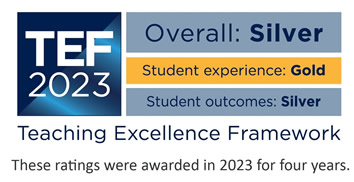FdSc Assistant Practitioner - Health and Care with Foundation Year
About This Course

Are you passionate about making a difference in people's lives? Do you have an interest in healthcare but are unsure where to start? A career as an assistant practitioner in the UK might be the perfect fit for you. This role offers a unique blend of hands-on patient care and professional growth, making it an appealing option for individuals aged 18+. Whether you're just starting your career journey or considering a change, here's what you need to know about becoming an assistant practitioner.
What is an Assistant Practitioner?
An assistant practitioner is a healthcare worker who supports registered practitioners, such as nurses, physiotherapists, and radiographers, in delivering high-quality care. They work across various settings, including hospitals, community clinics, and residential care facilities. While they are not fully qualified professionals, assistant practitioners play a crucial role in the healthcare team, performing tasks that require a higher level of skill and responsibility than healthcare assistants.
Key Responsibilities
The duties of an assistant practitioner can vary depending on the healthcare setting and specialty. However, some common responsibilities include:
• Patient Care: Assisting with personal care, monitoring vital signs, and supporting patients with mobility.
• Clinical Tasks: Performing basic medical procedures like taking blood samples, dressing wounds, and administering medications under supervision.
• Administrative Duties: Maintaining patient records, scheduling appointments, and coordinating with other healthcare professionals.
• Support Services: Providing emotional support to patients and their families and educating them about health management and preventive care.
Successful assistant practitioners possess a blend of technical skills and personal qualities. Here are some key attributes:
• Compassion and Empathy: A genuine desire to help others and the ability to understand and share the feelings of patients.
• Communication Skills: Clear and effective communication with patients, families, and healthcare team members.
• Attention to Detail: Precision in performing clinical tasks and maintaining accurate records.
• Teamwork: Ability to work collaboratively with a diverse team of healthcare professionals.
• Adaptability: Flexibility to handle a variety of tasks and respond to changing patient needs.
A career as an assistant practitioner is a rewarding and fulfilling choice for those interested in healthcare. It offers a balance of patient care, professional development, and job security. Whether you're a recent school leaver, a career changer, or someone looking to advance within the healthcare field, this role provides a solid foundation for a meaningful career. If you have the compassion, dedication, and desire to make a difference, consider exploring the path of an assistant practitioner. Your journey in healthcare could start here. After successful completion of your degree assistant practitioners in the NHS are currently on Band 4.
Standard offer
For this programme, applicants will require 3 GCSEs grade C/4 which must include Maths and English, or an appropriate level 2 qualification such as BTEC Certificate, Level 2 pass in Numeracy and Literacy.
Non-standard offer
The Institute encourages applications from those who lack institutional qualifications, which is in line with the widening participation brief. All such applicants will be set an appropriate piece of work for an academic to assess; a judgement will then be made on this work considering academic potential and relevant experience. However, all applicants must hold a Level 2 pass in Numeracy and Literacy which must be achieved prior to the start of the course.
This programme involves regular contact with vulnerable adults, also known as regulated activity, and as such an Enhanced Disclosure and Barring Service (DBS) check is required prior to enrolment to enable the student to go into placement. The cost of the undertaking is the responsibility of the students, and the outcome of the DBS will be considered on an individual basis.
As this course includes mandatory patient-facing placements in health or social care settings, you will need to comply with the placement policy or Government vaccination rules for those settings. This includes any changes to these rules announced at a future date. Failure to comply with any vaccination requirements could see the placement withdrawn, and this may result in your withdrawal from the course. You should be aware that future employment in this sector may also be subject to vaccination requirements. You must also complete a course of Hepatitis B vaccination and complete an Occupation Health screening at your own cost.
Students will complete 120 credits at each year.
At level 3, there will be six modules:
- Principles of Health and Care
- Literacy and Study Skills
- Digital Skills
- Numeracy for Healthcare
- Fundamentals of Science
- Social Science Perspectives of Health
At level 4 there will seven modules:
- Preparing for Professional Practice
- Introducing Clinical Skills
- Research and Study Skills
- Developing Clinical Skills
- Anatomy and Physiology
- Counselling Skills and Communication
- Introduction to Mental Health
At level 5 students need to complete seven modules:
- Advancing Skills and Medicine Management
- Psychology in the Healthcare Setting
- Developing Practice Skills
- Health Promotion and Well being
- Contemporary Issues in Health
- Understanding Pain
- Child and Adolescence Health and Development
At Foundation Year (Year 0) and level 4 students are supported to develop their academic skills through a research and study skills module which will enable them to complete their assessments to the correct level of academic requirements. Essay and Report writing, presentations using ICT, reflective writing, undertaking secondary research, presenting structured arguments and Harvard referencing will be introduced and assessed. At this level, basic principles of all the concepts within these modules are taught so these can be built upon as they progress to higher levels.
At level 5 students are supported to build upon the academic skills gained at level 4 with a stronger focus on independent research. They will be supported in developing their critical thinking and writing skills and will be encouraged to use wider source material to construct a critical argument. Module assessment will be varied to develop and test the students' academic, problem solving, and practice skills at the required level.
1. Career Advancement: Graduates can apply for Band 4 positions within the NHS and other health and social care organizations. This role often serves as a stepping stone to further qualifications and career progression, such as becoming a fully registered healthcare professional.
2. Practical Experience: The programme includes significant work-based learning, allowing students to gain hands-on experience in various healthcare settings.
3. Skill Development: Students develop a range of skills, including critical reflection, evidence-based practice, and interpersonal skills. These skills are essential for delivering enhanced patient care and improving workplace confidence.
5. Networking Opportunities: The programme often includes guest lectures, field visits and other opportunities to learn from and meet other health professionals.
6. Further Education: Graduates can apply for level 6 to complete their undergraduate degree in BSc (Hons) Health and Social Care or apply for pre-registration courses at other universities.
These benefits make the Assistant Practitioner programme a valuable pathway for those looking to advance their careers in healthcare. If you have any specific questions about the programme please come and see us!
The Assistant Practitioner foundation degree will enable students to work with registered health and social care professionals, with a level of knowledge and skill beyond that of the traditional band 2 and 3 support worker or healthcare assistant roles. The programme is both a theoretical and competencybased course of study which will broaden students’ appreciation of the wide range of vocational opportunities within health and social care. Opportunities exist for students to work with a selection of different healthcare professionals in multidisciplinary environments to establish outcomes linked to core standards. After completing this programme, students will be qualified to the NHS band 4 level.
Graduates might apply for pre-registration courses for nursing, paramedical science, radiography, digital radiography, physiotherapy, occupational therapy, speech and language therapy, and Operating Department Practitioners, or go into employment in primary or secondary areas of practice.








